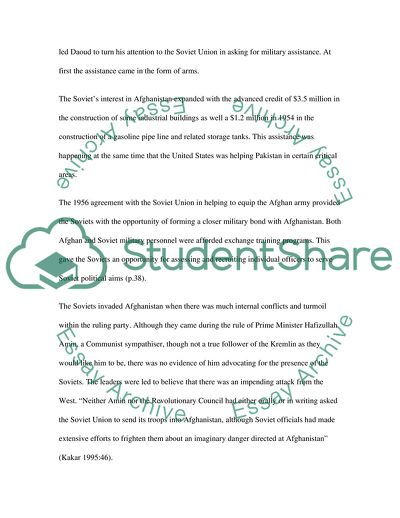Cite this document
(The Ramifications of the Soviet Union Invasion of Afghanistan Essay, n.d.)
The Ramifications of the Soviet Union Invasion of Afghanistan Essay. https://studentshare.org/military/1734536-what-were-the-ramifications-of-the-invasion-of-afghanistan-for-the-soviet-union
The Ramifications of the Soviet Union Invasion of Afghanistan Essay. https://studentshare.org/military/1734536-what-were-the-ramifications-of-the-invasion-of-afghanistan-for-the-soviet-union
(The Ramifications of the Soviet Union Invasion of Afghanistan Essay)
The Ramifications of the Soviet Union Invasion of Afghanistan Essay. https://studentshare.org/military/1734536-what-were-the-ramifications-of-the-invasion-of-afghanistan-for-the-soviet-union.
The Ramifications of the Soviet Union Invasion of Afghanistan Essay. https://studentshare.org/military/1734536-what-were-the-ramifications-of-the-invasion-of-afghanistan-for-the-soviet-union.
“The Ramifications of the Soviet Union Invasion of Afghanistan Essay”. https://studentshare.org/military/1734536-what-were-the-ramifications-of-the-invasion-of-afghanistan-for-the-soviet-union.


